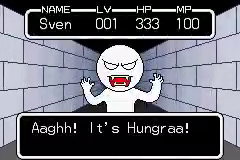In Finnish we have “kissanristiäiset” (literally means a cat’s christening), which means some trivial and meaningless celebration/event.
There’s a bunch of weird ones in Portuguese.
- “Caroço de manga não é sabonete” Do you think that mango seed is soap? = “this is an absurd proposal/situation/etc.”
- “Pobre só sobe na vida quando o barraco explode” Poor people only ascend on life when the [shit]shack explodes. = “don’t expect social ascension”
- “Enquanto vem com o milho, já comi a polenta.” While you’re bringing the corn, I already ate the polenta. = “I’ve already handled this, you’re too late.”
- “um polaco de cada colônia” a Pole from each settlement = a bunch of randomly picked people or items. I don’t think that people use this too much outside Paraná.
- “farinha do mesmo saco” flour from the same bag = extremely similar in some aspects that matter (and usually negative ones)
- “comer o pão que o diabo amassou” to eat the bread kneaded by the devil = to go through rough times
- “Vai chupar prego até virar tachinha!” Go suck an [iron] nail until it becomes a thumbtack! = somewhat polite way to tell someone to fuck off
- “Vai ver se estou na esquina.” *Go check if I’m around the corner." = also a way to tell people to fuck off
- “anta quadrada” squared tapir = “anta” tapir is used to call someone stupid, so anta quadrada is stupid to the power of two.
- “anta cúbica” cubed tapir = because some people do some really, really stupid shit.
- “mais louco que o Requião de pedalinho” crazier than Requião on a paddle boat = Requião is a politician here in Paraná known for his crazy antics. The phrase highlights that something is completely fucking crazy. Clearly local.
- “teu cu” your arse[hole] = definitively, clearly, and blatantly “no”.
“While you’re bringing corn, I already ate the polenta” is brutal
Small note, this is Brazilian Portuguese 🇧🇷 (PT-BR), not European Portuguese 🇵🇹 (PT-PT). I never heard most of these. We do have the “farinha do mesmo saco” and “comer o pão que o diabo amassou” though.
One important detail is that those country-based labels are at most abstractions or geographical terms. “Brazilian Portuguese” and “European Portuguese” aren’t actual, well-defined dialects; what people actually speak is local, in both sides. (e.g. “Paulistano Portuguese”, “Alentejano Portuguese”, “Estremenho Portuguese”, you get the idea.)
This is relevant here because I wouldn’t be surprised if plenty Brazilians never heard some of those. For example, “um polaco de cada colônia” only makes sense in Paraná, Polish immigration here was large enough to make some people call other immigrants “Poles”, even Germans and Italians. So the “Poles from each colony” are usually people/things that you might think that are related, but have zero to do with each other.
You’re not wrong but the way I see it it’s a hierarchical term.
Portuguese - all Portuguese based languages Brazilian Portuguese - all Portuguese dialects in Brazil European Portuguese - all Portuguese dialects in Portugal Angolan Portuguese - all Portuguese dialects in Angola and so on…
I’m not expecting everyone to know every expression under the sun, but those are CLEARLY Brazilian-Portuguese based so I thought it best to clear it up because people just say Portuguese most times and I feel that creates some confusion.
Sorry for the long reply, I happen to enjoy this subject quite a bit.
The “hierarchy” breaks once you try to analyse it with no regards to governments, focusing solely on linguistic features (phonetic, phonology, syntax, and the expressions). Because of things like this:
- Manezinho (from Florianópolis) and Azorean dialects are clearly a beast apart. They can understand each other, nobody else can understand them. If there’s one major division in Portuguese, it got to be Insular with those two and Continental with the others.
- Alentejo usage of -ndo gerunds, a gente, and a partially syllable-timed prosody. Those things are typically associated with BP, not EP.
- Mineiro (BP) often reducing vowels even more aggressively than Estremenho (EP), even if theoretically BP is known for syllable-timed prosody.
- More conservative speakers in Paraná and Santa Catarina not raising the final unstressed vowels (you know, that “dor de dente” [dẽte] meme for Curitiba? That’s it), while almost everyone else would raise it to either [ɨ] or [i]. It’s a phonemic deal because the raising merges /e o/ and /i u/ in this position. For reference this conservation of the unraised vowels is usually associated with Galician, not even Portuguese. And it’s actually a phonemic deal, since the raising triggers a merge for non-conservative speakers in Brazil.
- The dialects in the northern ~half of Brazil (N, NE, chunks of SE) palatalising [s~z] into [ʃ~ʒ], a trait shared with dialects spoken in Portugal, but not with the southern ~half.
- In the same rough area as above you got a coda /ɾ/→/r/ shift. Mattoso Câmara tries to deal with it in a cheesy way, but it’s also phonemic in nature, unlike using [ɹ] for /ɾ/.
- Lack of regressive T-palatalisation (/ti/ as [tʃi]) in some chunks of the Brazilian Northeast, in Cuiabá and in some chunks of Santa Catarina. Often with some caveat, like Cuiabano rendering /ʃ/ as [tʃ] instead, some Nordestinos doing progressive palatalisation (e.g. “oito” as [ojtʃu]) and some Catarinas using [ts] instead (e.g. “tia” as [tsiɐ]), that’s clearly a parallel development.
- Trasmontano still keeping the old /ʃ/ vs. /tʃ/ distinction; e.g. “xícara” with /ʃ/, but “chiar” with /tʃ/.
- A few heavily conservative expressions used in Caipira Portuguese, such as “inda” and “despois”. Caipira also merges the original coda /l/ with /ɾ/ instead of /w/ (e.g. “mal” as homophone of “mar”, not of “mau”)
- The SOV→SVO shift for clitic pronouns (te falar → falar-te) being likely more recent in Portugal than the colonisation of Brazil; for example, check news for the Lisbon earthquake and you’ll see SOV being used all the time.
I’m not informed enough on the dialects spoken in Africa to affirm anything about them, but I wouldn’t be surprised if that also applied there - for example, Portuguese as spoken in Luanda being actually closer to the one in Lisbon than the one in the Angolan countryside.
And it actually makes sense, when you think about the initial colonisation of Brazil - you had four initial settlements, most people were likely from southern Portugal, and each settlement would undergo independent dialect levelling.
Any hierarchy that we put here would eventually break, by the way. You get a bunch of wave innovations but their pattern usually ties large centres together, regardless of country, with rural varieties either adopting those features later or developing alternative ones. But if we must see it on a hierarchical way, the split wouldn’t follow country borders, it would be more like:
- Galician-Portuguese → Galician + Portuguese
- Portuguese → Coimbra-Lisbon + “a gente” dialects (southern Portugal and Brazil)
- “a gente” dialects → coda-/r/ dialects (northern half of Brazil) vs. coda-/ɾ/ (southern half of Brazil + Alentejo and the Algarve)
Note how the division actually lumps Alentejano and Algarviano alongside what you’d call BP, not EP. And note how it still breaks, for example the /ʃ/ coda in the northern half of Brazil was likely interference from Estremenho, even if both dialects would be relatively far from each other in the hierarchy.
That was a lot to take in indeed. I can’t speak for other dialects, but I can understand Azorean accent absolutely fine, same with Madeira. There are some idiomatic expressions here and there that I would maybe not understand but I would still clearly call it European Portuguese.
The same goes for Alentejo. They do use -ndo ending sometimes but I would still clearly call it mostly European Portuguese.
I don’t think this subject needs to be as complicated as you make it. Yes, if we deep dive we can look at things that way but I don’t really think that kind of discussion applies here, nor am I knowledgeable enough to engage with you on that hahah
I do love how passionate you are about it though!
At the end of the day what I mean is simply that any somewhat scientific “split” will not match the countries, making the labels near useless for a “hierarchy” (tree-like model) of sorts.
One important detail to consider is expectations - I’ve noticed that plenty speakers in Brazil tend to associate EP with specifically Estremenho, and in Portugal it seems to be that BP is mostly associated with Paulistano. But since those two diverge quite a bit from each other, this difference ends [incorrectly] extrapolated to some expectation of otherness and uniformity in “Portuguese as spoken there”.
Tendo dito isto, já que disse entender a variedade dos Açores: como classificaria a variedade deste vídeo - pt_PT ou pt_BR?
I do love how passionate you are about it though!
Thanks, and sorry - durante meus tempos de uni trabalhei com variedades locais (embora o foco fosse outro), então acabo falando um pouco demais do assunto, quando vem à tona.
Scientifically it’s hard to pinpoint exactly what makes EP or BP or others. Although maybe it could be done?
However, it’s easy to tell BP a part from others. If you mainly use “você” it’s BP. If you don’t use it, then you’d have to check other things I guess. Since, for instance, Portuguese from most African/Asian countries use “tu”.
Em relação ao vídeo, facilmente classificaria o vídeo como PT-BR. Apesar de não entender tudo, não só pelas expressões mas pela rapidez como é falado, consigo claramente perceber algumas expressões que dão características de Português do Brasil. Exemplos, a expressão “Aí eu falei”. O uso de “o cara”, “poxa” e outros. Não saberia dizer de que região do Brasil seria o sotaque/expressões, mas conseguia facilmente dizer que era do Brasil.
Edit: afinal até percebo melhor do que pensava. Tinha a velocidade do YouTube a 1.25x Voltando para 1x, ficou mais fácil de perceber.
Only a few of these - “comer o pão que o diabo amassou”, “vai ver se estou na esquina” - are used in Portugal, so they’re mostly used in Brasil.
The language hasn’t drifted all that much in between both countries during the last couple of hundred years but expressions seem to tend to be the first to drift away.
It also seems to me that expressions drift away faster than other aspects of the language. Perhaps due to their casual nature, or due to context. And they’re often extremely local, too - for example, I’ve heard nordestinos using “sacrifício de mundo” (lit. world sacrifice) to refer to difficult things, while folks here in Paraná practically never do it. While saying that something is “uma vaca no milharal” (a cow in the corn farm - wrecking everything with no regards or reason) usually outs the person as from a rural background.
For speakers from Portugal there’s an additional weird expression: pila is used here in Paraná as a completely innocent word for money, e.g. “dois pila” two bucks. (In PT I believe that it’s used as a slang for dick.)
You are correct on the pila thing, though it’s old fashioned and kinda children’s language.
Funilly enough and if I remember it correctly, a pila is a kind of throwable spear from the Roman times.
Funilly enough and if I remember it correctly, a pila is a kind of throwable spear from the Roman times.
You might be into something here. The spear is pilum, and Portuguese reborrowed it as pilo. However Portuguese used to repurpose the gender change for specific types of something, specially for Latin neuter words: see ovo/ova, casco/casca, jarro/jarra, barco/barca. It’s possible that the slang appeared this way, with people referring to their dicks as a type of spear. (It’s kind of childish but fairly common; c.f. caralho from caraculum “small mast”)
There’s also another Latin pila meaning mortar, but it got inherited by Portuguese as pia “sink”.
(IIRC pila-as-money is from a politician, Raul Pilla.)
Alternative for “vai ver se estou na esquina” is “vai catar coquinho” (go gather little coconuts), I guess because it’s a silly, futile task?
Haven’t seen some of these before. Ones I particularly like are:
- Tirar o cavalo da chuva: take your horse away from the rain = give up on something
- Lavar as mãos: wash (the) hands = do not involve yourself in something
Wash your hands of [something] is also in American English, although I think more typically used when you were already involved in something then removed yourself from the situation
Another Bible reference; this one refers to Roman governor Pontius Pilate washing his hands to indicate being done with the issue of Jesus’s execution.
Oh right, I hadn’t thought about it!
I always said it as while you’re bringing the wheat I already ate the bread. But in my family we exaggerated it for effect: while you’re buying the wheat seed, I already shat the bread 😂
while you’re buying the wheat seed, I already shat the bread
Like, “enquanto você tá comprando o trigo, já caguei o pão”? That’s hilarious!
Isso, e era competição entre meus irmãos pra exagerar ao máximo : tipo, enquanto você estava a caminho da loja pra comprar o trigo, eu já comi o pão, caguei, fiz composto com a merda e plantei mais trigo, etc, etc
Czech has a lot of them!
Dělá z komára velblouda.
He’s making a camel out of a mosquito.
= He’s making it seem like a bigger problem than it is.Nemaluj čerta na zeď.
Don’t draw an imp on the wall.
= Don’t be pessimistic. Don’t assume the most catastrophic scenario.Jsem tam pečený vařený.
I’m there baked cooked.
= I go there a lot.Dala mi košem.
She hit me with a basket.
= She dumped me, or rejected my (mostly romantic) offer or advances.Dělá jako by se nechumelilo.
He’s pretending like it’s not heavily snowing.
= He’s pretending like something doesn’t concern him. He’s nonchalant about a serious situation.Kápni božskou!
Drip the divine! (Object implied. Probably “the divine truth”)
= Tell the truth. Spill it.Láme to přes koleno.
He’s breaking it over his knee.
= He’s forcing it.Natáhnout bačkory / brka, zaklepat bačkorama
To stretch (one’s) slippers / quills, to tap with (one’s) slippers
= To die. To kick the bucket.Padli jsme si do oka.
We fell into each other’s eye.
= We hit it off.Rozumí tomu jako koza petrželi.
He understands it like a goat understands parsley.
= He doesn’t understand it.Přišel jsem s křížkem po funuse.
I came with a little cross after the funeral.
= I came too late.Házím perly sviním.
I’m throwing pearls to swines.
= I’m doing good work or acts of kindness that go underappreciated.And I could go on :)
This is fascinating!
I’m also curious what causes idioms to be shared across languages, like “pearls before swine” (presumably this is shared because of the biblical verse, Matt 7:6)
I am absolutely going to use “he’s pretending like it’s not heavily snowing” from now on. Thank you for sharing all of these!
I’m glad so many people enjoyed my comment! Czech is a colorful language 😊
Like pearls to swine is a very seldom used idiom in English too, used very rarely and often in archaic/medievel/fantasy settings. Very interesting 2 languages have a shared idiom so neatly translated.
It’s from the Bible.
“Give not that which is holy unto the dogs, neither cast ye your pearls before swine, lest they trample them under their feet, and turn again and rend you.” – Matthew 7:6
“Drip the divine”
I love that Czech has a phrase for “spill the tea” but way cooler
Some of these are very interesting to me because very similar ones exist in German! Especially “einen Korb geben” (to give a basket) has me intrigued. Does this phrase come from a social norm to give a basket of something to someone you reject?
Thanks for sharing!
It’s very interesting indeed, I tried to research the origin of the idiom but was unsuccessful 🤔
I could hear someone with a very (US) Georgian accent saying “He understands that like a goat understands parsley”.
“I don’t know where it comes from, but it’s tasty.” – the goat
deleted by creator
In Dutch we have one similar to dělá z komára velblouda, we say “van een mug een olifant maken” (making a mosquito out for an elephant), it means the same!
Also one similar to přišel jsem s křížkem po funuse; “mosterd na de maaltijd” (mustard after the meal) means something mentioned or brought too late, when it was no longer necessary.
I wonder how many languages have sayings like this.
In English, we have “making a mountain out of a molehill”.
Ah, I’ve never even heard of that one in English!
That’s interesting!
In Australia people who mean business say “I’m not here to fuck spiders.” I think that’s just wonderful.
In America we express suffering beyond words by saying we’re “living the dream”. And the Brits think we have an irony deficiency.
In France we’re not here to fuck flies
We don’t mind others’ onions
When someone is about to get late somewhere, we say « Tu vas te faire appeler Arthur » (literally « You’re gonna be called Arthur »)
This expression came during the German occupation, when soldiers would shout « Acht Uhr » (« eight hour ») to people during curfew. It sounds like « Arthur » in French.
Last one. « Faire le Jacques » (« acting like Jack ») means « playing dumb »
TIL about the origin of « Tu vas te faire appeler Arthur »
That last one reminds me of something I heard on the Mighty Boosh. Vince called someone a “Jack of Clubs” for hitting him
Ok next alt account I make is going to be named fly fucker
You mean sarcasm
-a Brit
Yeah, right. They meant sarcasm.
Exactly, thanks
Idk the spiders looking are looking mighty fine
Shut up :)
Aussie subtleties of the c-word.
-
“Silly Cunt” = funny person (endearing)
-
“Stupid Cunt” = complete idiot (serious)
-
“Dumb Cunt” = a good mate acting stupid (jovial)
-
“This Cunt” = referring to a good mate who’s done/said something uniquely odd (jovial)
-
“Acting like a Cunt” = acting terribly (serious)
-
“Don’t be a Cunt” = stop acting terribly (serious)
-
“Bunch of Cunts” = all your good mates (endearing)
-
“Good Cunt” = the best compliment you can receive (endearing)
-
“Dog Cunt” = the worst insult you can receive (get ready to fight)
-
“Shit Cunt” = insult (serious)
-
“Bit of a Cunt” = insult (jovial)
You can put mad Infront of all the cunts that don’t have adjectives already to make them even more extreme.
“This mad cunt” for when your mate’s done something really out there while “mad dog cunt” is real fucking bad for example
-
Here are some useful Australian phrases:
- Flat out like a lizard drinking (working hard)
- we’re not here to fuck spiders (you’re wasting time, get on with the work)
- 40¢ short of a shout (not quite right in the head)
- How’d you be? (Are you well?)
- Living the dream (I am well, thank you)
- See you when I’m looking at you (goodbye)
I hate that your spiders are big enough to fuck
At least they’re not big enough to fuck you.
Lol that’s a good perspective!
“Living the dream” is also in the US but it’s usually more sarcastic like “Just another shitty day at this job, just living the dream!”
Yes, to me , also in the US, “living the dream” is exclusively very sarcastic and means something like “is this really all there is to life.” People also use “another day in paradise.” Means the same thing.
I want to tell everyone that we aren’t here to fuck spiders. This is my new anthem.
The more work appropriate version of this is “im not here to put boots on caterpillars”
Speaking of which, it reminds me of the curse “May your wife give birth to a centipede so that you have to spend the rest of your life working to buy shoes for it”.
- Face like a dropped pie/chewed mintie/hat full of arseholes (un-attractive)
- Going off like prawns in the sun/frog in a sock (really good time or a raving loony)
- mad as a cut snake (Karen)
- I could eat the arse out of a dead rhino/dingo (really hungry)
One of my favorite examples in (American) English has to be “There’s more than one way to skin a cat”; meaning there are multiple viable strategies for the task or problem at hand.
I never really appreciated how morbid it is until I saw the shocked face of a fluent but non-native english speaking colleague after using it in a meeting.
I almost got punched in a bar once for saying that a non-native English speaker was grinning like an idiot. Didn’t occur to me he wouldn’t understand the subtext on that one.
(For y’all ESL folks, it’s meant to be an endearing phrase indicating a joy so strong that you can’t stop yourself from smiling.)
Wait, just so I get this right, “there’s more than one way to skin a car” is also used to express joy? What?
No they’re talking about the idiom “grinning like an idiot” almost getting them punched despite being harmless to anyone with cultural context
Oh man i don’t know how I didn’t get that. Thanks.
When I was sticking my oar in too much on something he was doing, my Dad used to say “who’s skinning this cat, you or me?”
“Konstit on monet, sano mummo kun kissalla pöytää pyyhki.”
It’s basically the same idea, and it even involves a cat. However, in this case, a grandmother is wiping the table with a cat, and says “konstit on monet”. Crudely translated as “ways (of getting stuff done) are numerous.“
Realistically though, I’m pretty sure the cat would not appreciate this method. Come to think of it, you probably wouldn’t want to do this with any animal, least of all with one that is famous for having “murder mittens”.
Similar to the German “All paths lead to Rome”.
At least in Dutch we call it “meerdere wegen leiden naar Rome” (multiple roads lead to Rome) to do away with the morbidity…
“食西北風” (Cantonese, “eat north-west wind”) or “喝西北風” (Mandarin, “drink north-west wind”). It originally means having no food or drink, in other words, starving.
The meaning of this phrase is further extended to “running out of business”.
This is also partially where my username came from.
Danish is full of idioms. Some people can have entire conversations using only idioms.
Some of the peculiar ones with animals:
“There’s no cow on the ice” = it’s not urgent.
"The goat has been shaved " = the job is complete.
"A dog in a game of bowling " = someone that doesn’t fit in.
“The dog is buried there” = the problem is found there.
Wow, Danes don’t like dogs huh?
I would think they would think dogs were…great
I’ll see myself out
Ruh roh
“The dog is buried there” = the problem is found there.
We’ve got the same in Germany. Probably carried over because we’re neighbours.
First thing that came to my mind was “Da wird doch der Hund in der Pfanne verrückt!” - “That makes the dog in the pan go mad!” You basically say it when you’re angry about something. Usually as part of a string of expletives as you charge up a long furious rant.
And even better: we only use the ice-cow as a thing of the past. “Kuh vom Eis” (cow off the ice) in the sense of an urgent situation has been resolved.
Ice dwelling bovines seem to have been a real problem.
(American) English ones that come to mind:
- it’s raining cats and dogs (it’s pouring rain)
- I really shit the bed on this one (I fucked up really bad -not sure how widespread this is)
- a turd in the punch bowl (someone is singlehandedly ruining something, usually an event)
- don’t blow smoke up my ass (be honest with me)
- a walk in the park (pleasant/easy task)
don’t blow smoke up my ass (be honest with me)
alternative form: don’t piss on my leg and tell me it’s raining
“Someone screwed the pooch” - Someone made a big mistake, same as the “shit the bed” idiom.
Both are also common in Canada. Edit, actually every one of the parent’s idioms are common in Canada to varying degrees.
All of those are widespread in the northeast US if not across the entire US.
I’ve never heard number 3. Never lived in the northeast US though.
“Raiining cats and dogs” is not of American origin. The precise origin is unknown, but the first recorded uses are British, dating from the early to mid 17th century (Earliest uses are raining “dogs and cats” and “dogs and polecats”.) although it’s possible the phrase is significantly older than this.
The phrase is well known and widely used in the UK, and I doubt anyone here would consider it an American phrase.
Language is alive and I can’t see anyone requesting origins specifically. Phrases like this can be part of 2 cultures at once. You even share the same base language, and don’t even have hard proof one way or the other but still took the time to say ‘nay’. Pretty boring…
Language is alive
Where did I say it wasn’t? But language being alive doesn’t change history – the phrase was used by British writers before the USA even existed.
and I can’t see anyone requesting origins specifically.
So? I offered the origin as it was presented alongside a number of phrases that are of American origin, and that one stands out as not (also as being suspected far older in origin than the others). I’ve simply added some additional information to the discussion. If you find it “boring”, you are free to ignore it.
I didn’t request your reply, yet you still wrote it.
Phrases like this can be part of 2 cultures at once.
Where did I say it couldn’t? I merely stated that the phrase was not of American origin. I didn’t say it wasn’t used in the US, or that the UK somehow has some special exclusive licence to it.
and don’t even have hard proof one way or the other
I didn’t post sources because I was short on time, but here, have some… (as I apparently now have time to waste…)
- “Dogs and Cats rain’d in showre”, from the poem Upon a Cloke in Olor Iscanus (1651) by Henry Vaughan
- “…and it shall raine… Dogs and Polecats”, from The City Wit, or, The Woman Wears the Breeches (1653) by Richard Brome
- “it should rain Dogs and Cats”, from Don Juan Lamberto: or, a Comical History of the Late Times (1661) by Thomas Flatman
- “Made it rain down dogs and cats”, from Cataplus, or Æneas, … (1672) by Maurice Atkins
- “When it rains Dogs and Cats in Hell” from Maronides; or, Virgil Travesty, … (1678) by John Phillips
- “raining cats and dogs”, from A Description of a City Shower (1710) by Jonathan Swift
- “rain cats and dogs”, from Complete Collection of Genteel and Ingenious Conversation (1738) also by Jonathan Swift
You will note that these are all British works by British authors. I can provide even more if you need them.
While the ultimate origin is unknown (there are many theories), any claim to it being American in origin is surely nonsense. There is no evidence for this at all. If you have some, please provide it.
What proof have you provided? Indeed, what has your comment added at all to the discussion? You could have looked up those sources and extensive etymological research on Google with less effort than you took to write your comment.
Pretty boring…
And what about your own comment? It adds absolutely zero additional information to the conversation, is rude, and you clearly misconstrued and misinterpreted my comment (apparently with the most negative interpretation possible), without even bothering to research anything for yourself.
Personally, I think some may find it interesting that a phrase they might have thought was of modern American origin is actually from another country and of far more ancient origins they expect. To me, that is interesting. If it isn’t to you, why do you bother to read and comment?
In the future, I suggest you simply ignore comments you find boring and move on instead of posting insulting low-effort replies.
“Raiining cats and dogs” is not of American origin.
Nobody said it was of American origin. You’re putting words in the parent commenter’s mouth and then choosing to argue against them. That’s why people take issue with your comment. If you want to contribute to the conversation without coming off as argumentative then frame your point as adding to the conversation not as an argument against something that wasn’t said.
Nobody said it was of American origin
I know. Go back and read what I wrote. The only argument here was started by you. The only person putting words in others’ mouths is you.
The phrase is well known and widely used in the UK, and I doubt anyone here would consider it an American phrase.
Yes, and it’s used in many other places in the world that isn’t America either. That doesn’t change the fact that it is widely used in America. You may not have intended for your comment to come off as argumentative. But it did. You’re the one that joined the conversation by explaining that it’s not an American saying. It is a common saying in American English which is all the parent comment asserted.
And I didn’t assert otherwise. Perhaps improve your own reading comprehension before wading into a discussion of the English language.
This is a broad format, but I like the American English formula of “Well, blank my blank and call me a blank!” to express “oh wow, I did not expect that!”
Typically in my experience, it is pretty vulgar. Eg: “well, slap my ass and call me a bitch!”
Well suck my twat and call me cumquat
adopted
deleted by creator
Well, smoke my toads and call me a squid-squab!
Anybody here ever think about the etymology of the word “ok”?
Supposedly it started as an abbreviation of “oll korrect” and became popular in the 1840’s during a fad of abbreviating words a lot like we have “lol” or “omg” today. Then the abbreviation took on its own meaning and became one of the most widely used words to be borrowed by other languages, with a near universal meaning.
Now it even has its own word based on the pronunciation of the abbreviation, “okay”.
The equivalent of that would be if the word “lol” became synonymous with laughter over the next 150 years to the point where the words “laugh out loud” look alien and outdated.
deleted by creator
I don’t know why you’re getting down voted. I’m pretty sure I read an article that had both etymologies, with the consensus that no one really knows the truth.
deleted by creator
Germany, Hesse. We have some … interesting regional idioms Examples:
-
Furz mit Krücken (a fart with crutches) - a really stupid idea that’s bound to fail
-
Eine Gardinenpredigt halten (to hold a curtain preach) - to rant / tell someone off in a loud and angry way
-
Das macht den Bock auch nicht fett (that doesn’t fatten up the billy goat either) - somehing doesn’t matter anymore
-
Das Kind ist in den Brunnen gefallen (the child fell into the well) - something bad has already happened, intervening isn’t possible anymore, the only option is to deal with the consequences.
-
Besser als in die hohle Hand geschissen (better than shitting into your hollow hand) - better than nothing
-
Auf dem Zahnfleisch kriechen (to crawl on your gums) - to be totally exhausted
-
Klappe zu, Affe tot (hatch closed, monkey dead) - this is the end of the discussion
-
Passt wie die Faust aufs Auge (like a fist fits the eye) - a perfect match. Another variant is “Passt wie Arsch auf Eimer” (fits like a butt on a bucket)
-
Eine Laus über die Leber gelaufen (A louse walked across your liver) - to be annoyed and failing to hide it
-
Einen Besen fressen (to eat a broom) - exclamation of disbelief (“If that is really true, I’m going to eat a broom”)
-
Der hat Haare auf den Zähnen (he has hair on his teeth) - he is stubborn and loud about it
-
Das Leben ist wie’s ist, wer nen scheppen Arsch hat, hat nen scheppen Schiss. (Life is life, a person with a sideways arse poops sideways turds) - stop complaining about stuff you can’t change. “Schepp” is “schief”, but said with a dialect.
-
Wie der Och’s wenns blitzt (like an ox when lightning strikes) - to stare dumbfounded into space, usually because you don’t understand something / are surprised
-
Einbildung ist auch eine Bildung (delusion is also a form of education) - when someone is dumb but so full of themselves that they don’t realize HOW dumb they are. “Einbildung” and “eine Bildung” sound very similar.
-
Wer im Glashaus sitzt, soll nicht mit Steinen werfen (if you sit in a glass house, don’t throw stones) - don’t gossip about others when you’re also guilty of the thing you want to gossip about
-
Am Arsch die Waldfee (by the butt of the forest fairy) - “This is ridiculous and I refuse to believe it” Another variant is “Am Arsch die Räuber” (by the butts of the robbers)
-
Himmel, Arsch und Zwirn! (heaven, ass and twine!) - for fuck’s sake!
-
Herr, schmeiss Hirn vom Himmel! (Lord, throw a brain down from the Heavens!) - when you’re frustrated with someone really stupid. Another variant is “Herr, schmeiss Hirn vom Himmel - oder Steine, Hauptsache du triffst!” (Lord, throw a brain down from the Heavens - or rocks, as long as you hit your mark!)
-
Nicht mein Affe, nicht mein Zirkus (not my monkey, not my circus) - This is not my responsibility, go ask someone else
-
Wie ein Affe auf einem Schleifstein (like a monkey sitting on a grindstone) - you’re sitting weird
-
Das gleiche in Grün (the same, but green) - two things are essentially the same
-
Zum Mäusemelken (like milking mice) - something is complicated and frustrating
-
Ich hab schon Pferde vor der Apotheke kotzen sehen (I’ve seen horses barf in front of a pharmacy) - I’ve seen weirder things in my life
I’m from Hamburg and I know the majority of these as well, but some are a bit different. Here’s some variations on yours:
- Das macht den Kohl auch nicht fett (that doesn’t fatten up the cabbage)
- Herr, lass Hirn vom Himmel regnen! (lord, let it rain brains!)
- Wie ein Schluck Wasser in der Kurve (like a sip of water turning a corner) - sitting very lazily/not upright
Are you sure the first one is about cabbage and not the politician?
No I am not sure actually, it might very well be! Both would make sense conceptually but I never actually looked into which one it is
Also german. Somewhat sure it’s about good old Helmut.
Is “das ist mir wurst” a thing? That’s one I learned from my MIL (from Bavaria).
I also have a special love for the word “Mietschuldenfreiheitsbescheinigung”. And yes I had to Google the spelling lol.
We say “das ist mir Wurst” in Hamburg too, so it must be a pretty universal saying.
Is Mietschuldenfreiheitsbescheinigung used in a saying? The only meaning I can think of is the literal one (attestation of no rental debt)
You are correct, it’s the attestation, not an actual saying. I just think it’s wild how many words were shoved together to make this abomination of a word.
It’s called a composite word. English has them too, like schoolbus, but German just went crazy with them. Feels like every other word is a composite
Flugzeug = flying stuff = plane
Glühbirne = glowing pear = light bulb
But some examples just take it on a whole other level. Like “Rindfleischetikettierungsüberwachungsaufgabenübertragungsgesetz”, meaning “Beef labeling supervision duties delegation law”.
TBF English has words like “backpack”, which then get turned into a verb like “to go backpacking”.
But in some Germanic language like German (Dutch too), you should write all words that describe one noun together as one, which leads to words like huttentuttententoonstelling.
Yup that is me sausage is a german thing.
It’s a thing in Hesse, too ;) you can also say “Ist mir Schnuppe” or “Ist mir schnurz”, which essentially mean the same thing (“I don’t care”) but the literal translation is different. “Schnuppe” is the burnt end if a candle wick, but I have seriously no idea what “schnurz” is supposed to be, lol.
-
I’ve been learning Scots gaidhlig which has some really great ones:
As happy as a mouse in a loaf (really happy)
As happy as a shoe (not happy at all)
As fat as a seal (very fat)
As full as an egg (couldn’t be fuller)
As wet as a cormorant (soaked)
As bald as a shinty ball (hairless)
There are many others.
In the Sesotho language of Lesotho, if you say to someone, “I’m not your mother”, it’s a terrible insult.
Another insult of equal vehemence is, “you are like a cat that jumps across a ravine and scribbles up the other side”.
People in the village I lived in told me that either of these could result in someone being killed.
Vader: No, I’m not your mother, I’m your father.
Please tell us what these insults mean, and why they are so dire!
My wild guess is that “I’m not your mother” could be an explicit denial of sympathy, carrying the implication of “you’re being a whiny bitch”.
Unfortunately, I have no idea what the origin of these phrases is, or why people there take offense at them.
U.S. here. I find this both interesting and disturbing. I can sort of get the meaning. But scary! I hope you are okay.
deleted by creator





















